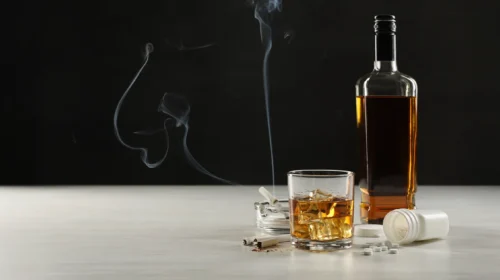A FEW WORDS ABOUT ADDICTION IN FAMILIES FROM RECOVERY UNPLUGGED NATIONAL OUTREACH MANAGER BLAKE COHEN.
“Whatever those therapy groups you go to are doing, it’s working.”
My mother said that line to me over Thanksgiving dinner right before I celebrated four years of continuous recovery from a substance use disorder. When she said it, though, her eyes were making a different statement. It was a statement of cautious optimism in which she was expressing pride in turning my life around and, at the same time, letting me know that she hasn’t yet overcome the pain she felt helplessly watching her son destroy himself for years.
The families of an addict or alcoholic are victims to a disease that torment’s their loved ones while they often stand idly by with their hands tied behind their back. Imagine you’re thrown onto the scariest roller-coaster ever against your will. Now, imagine that roller coaster’s brakes are broken, and you are stuck just riding it over and over again. Oops, the restraint bar that’s holding you in your seat is loose so now, this horrifying ride, just got even scarier. That is what it’s like being a family member watching your loved one struggle with addiction.
Even once the loved one gets into recovery; the ride doesn’t stop there for at least a little while. It’s as if you’re still stuck on said roller coaster but its’ slowed down drastically yet you’re afraid it could speed back up at any moment. The fact of the matter is, it’s a form of trauma that the family is experiencing, and trauma needs to be treated. We’ve all heard the phrase “addiction is a family disease” which tells me that the recovery process must also be addressed as a family.
Long-term Issues Related to Addiction in Families
Typically, some of the longer lasting issues, for family members, that is created by an addiction in the family are mistrust, codependency, negative coping skills, resentment and financial burden. These are heavy prices to pay for a loved one’s actions but, sometimes, it is what it is. Now comes the part where a decision to get on with life has to be made and progress must begin. The five, aforementioned, issues sound daunting but each one of them can be managed. Just like an addict is able to form new, healthy habits, the family is able to do so as well. In my opinion, this all begins with education. The disease of addiction is a complicated and baffling disease that, when misunderstood, seems impossible to overcome. Obviously, that is not the case, though, and recovery is absolutely possible.
Knowledge is Power: Educating Families Dealing with Addiction
Educating one-self on addiction while their loved one begins their recovery process is the first step to getting off the roller coaster ride. An equally important step, in my opinion, is learning to improve communication skills. Here’s a scenario in which poor communication and lack of education leads to issues in the home:
Newly-clean and-sober John, comes home from work and looks exhausted. He sits on the couch and begins to fall asleep after a long day at work. His mother walks into the room and sees John in the process of falling asleep and automatically assumes he must be using again. Seeing him fall asleep like this on the couch triggers a memory of her finding him “nodding out” in his bedroom so she begins to panic. She wakes up John up by screaming and accusing him of relapsing. John responds poorly to his mother’s accusations and has an emotional outburst. He storms from the living room to his bedroom and slams the door. They are both left feeling distraught, angry, and resentful.
Now, in this next scenario, John’s mother has educated herself on addiction and recovery and has decided to use healthy communication skills to address her concerns:
John comes home from work and looks exhausted. He sits on the couch, after a long day of work, and begins to fall asleep. His mother walks into the room and sees John in the process of falling asleep. Based on her past with John, she is concerned that he may have relapsed so she decides she should openly address her concern with John. Understanding the emotional instability that can be caused by post-acute withdrawals, she is sure to remain calm and speak from a place of concern rather than anger or panic. “John, wake up, please. Seeing you falling asleep, the way you are, brings back old memories so I just wanted to check on you to make sure you’re adjusting to your new job ok. You know if you’re struggling, you can speak to me, right?” John responds in a relaxed manner and assures his mother he is just tired from work. “I appreciate and understand the concern, I’m just getting used to the new schedule and haven’t been able to sleep much at night, yet.” John’s mother is satisfied with his response and knows that sleeping can be difficult in the first few months of recovery based on what she’s read and has been told. She walks back into the kitchen to finish dinner while John gets his rest on the couch. While his mother is still aware that John is not out of weeds yet in terms of relapse, no further resentment or anger were created during this interaction and they took a healing step towards open communication and trust building.
As we can see in those two scenarios, education and communication are two extremely powerful tools when dealing with a loved one in early recovery.
Helping Families Understand the Disease of Addiction
One of the hardest concepts for a family member to understand is that they will, as a result of their loved one’s substance abuse disorder, have to now do work on themselves so that the family can heal. As hard as this is to grasp for families, it’s a crucial step towards healing that must be taken.
One last thing I’d like to mention is that the loved one that is using may not end up finding recovery. All too often, we deal with people that the grips of addiction have a hold on them so tight that they can’t escape and as hard as this may be to hear, sometimes it’s necessary for the family to move on in order to protect themselves. This isn’t an easy thing to do, in fact, it may be one of the most difficult things a person would ever have to do, but it may have to be what’s done in order to protect the family unit as a whole. I am not suggesting giving up on the addict/alcoholic but I am suggesting detaching with love.
Learning to separate yourself from the person’s behaviors, ups and downs, and volatility. It’s stepping off the roller coaster yourself and allowing it to just keep riding along without you on it. If/when your loved one does finally reach out for help (and is serious), it’s important you a stable enough to actually be able to help them. Take care of yourself, work on healthy coping skills, develop a support network, and accept that you’ve most likely done all you can do and now the rest is in the hands of the substance abuser to get better.
For a list of resources that can help the family educate themselves and recover, go to:
https://www.samhsa.gov/find-help/national-helpline
If you or a loved one, believe that Recovery Unplugged is the place that can help, please reach out to Blake Cohen for more information (561-451-6361).

























